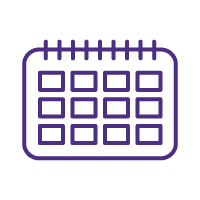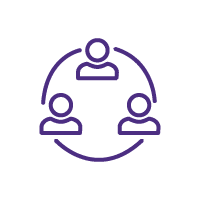OVERVIEW
- Uncover inconsistencies in student learning
- Discuss instruction using qualitative evidence
- Provide strengths-based feedback to support teacher growth
WHAT WE’LL ACCOMPLISH TOGETHER
Through our work together, participants will improve instructional leadership and teaching practice in schools and classrooms across an entire system. By creating a shared vision for teaching and learning, leaders ensure that all students can grow socially, emotionally and academically.
WHO IT’S FOR
HOW IT WORKS
In a collaborative learning community, participants spend 8-10 days observing and analyzing teaching and learning. Observation experiences elevate student experiences, particularly those furthest from success.
During whole group learning sessions, which occur at the beginning, midpoint, and end of the year, participants focus on:
- Identify inconsistencies in how students experience instruction
- Examining how personal perspective and ideas influence leadership
- Providing more effective, targeted feedback to teachers
- Planning strategic teacher learning that can have an impact right away
Embedded learning occurs throughout the year and allows participants to apply new knowledge and skills in small group settings. Activities include:
- Conducting learning walkthroughs
- Observing how students experience classroom instruction
- Collecting concrete, bias-free qualitative data
Includes the option to begin with the Measures of Instructional Leadership Expertise (MILE) online assessment to identify baseline strengths and areas for growth and optional coaching for central office leaders.
WHAT WILL BE DIFFERENT
- School leaders and teachers working together toward a shared vision of equitable student learning experiences and outcomes
- Leaders providing targeted, actionable feedback that helps teachers see the immediate impact of adult learning on student learning
- Leaders planning teacher learning based on qualitative data that centers how students, especially those furthest from justice, experience instruction



